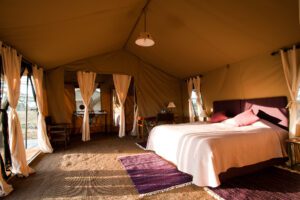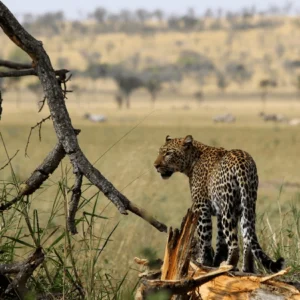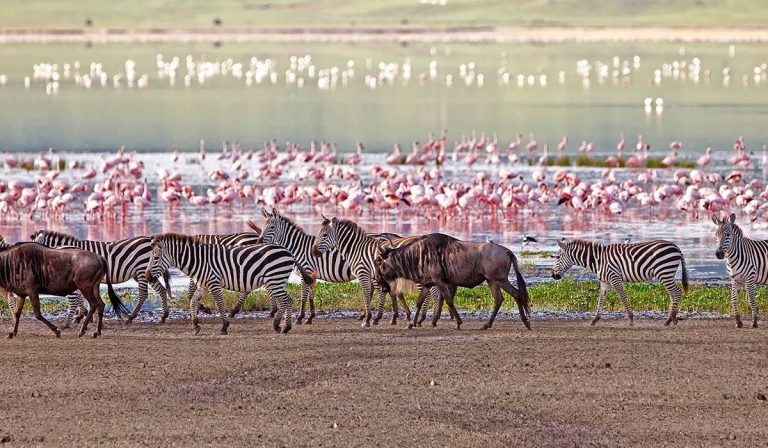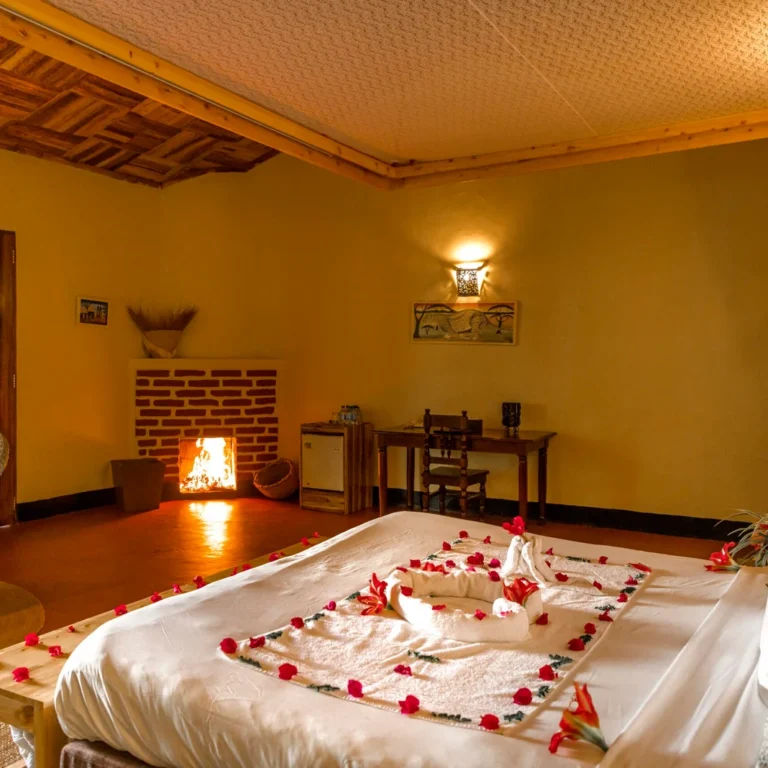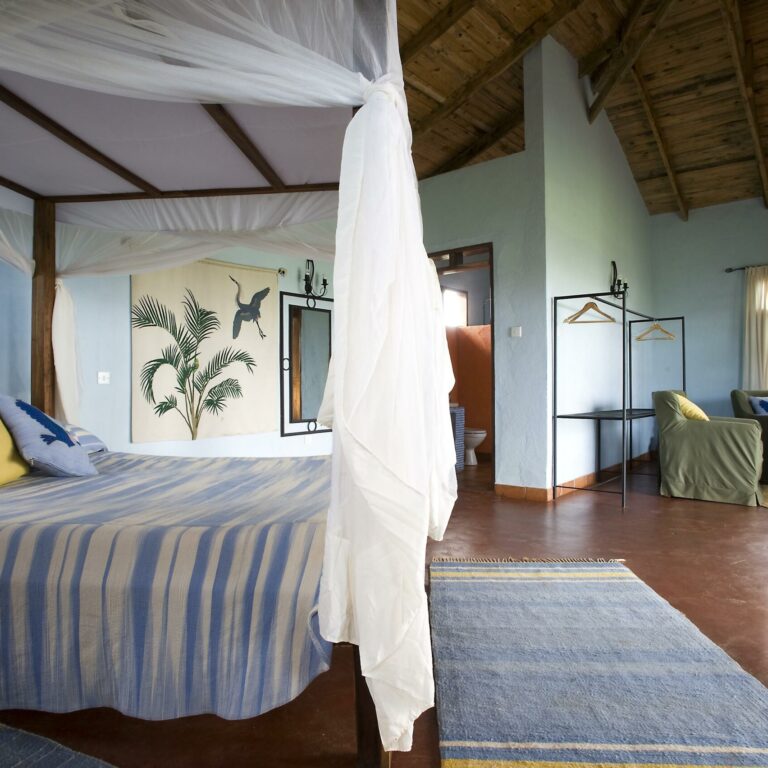Exploring the Wonders of Tanzania in July: A Comprehensive Travel Guide.
July is a captivating time to visit Tanzania, a country renowned for its diverse landscapes, rich wildlife, and vibrant cultures. Whether you’re a nature enthusiast, an adventure seeker, or someone simply looking for a unique travel experience, Tanzania in July has something to offer for everyone. In this article, we’ll delve into why July is an ideal month to explore Tanzania, provide valuable travel tips, and highlight key aspects such as weather, crowds, and costs.
Why Visit Tanzania in July:
Great Wildebeest Migration: July marks a crucial period for the Great Wildebeest Migration in the Serengeti. Witnessing thousands of wildebeest, zebras, and other animals crossing the plains is a spectacle like no other. The dramatic river crossings are both awe-inspiring and a testament to the circle of life in the animal kingdom.
Optimal Weather Conditions: Tanzania experiences its dry season in July, making it an ideal time to explore the country’s natural wonders. The weather is typically cool and dry, allowing for comfortable safaris and outdoor activities. The clear skies also enhance the visibility of wildlife during game drives.
Cultural Festivals: July is host to various cultural festivals in Tanzania, providing visitors with the opportunity to immerse themselves in the local traditions and festivities. From the vibrant colors of the Maasai people to the rhythmic beats of traditional music, cultural experiences abound.
Less Mosquito Activity: July falls within the low season for mosquitoes, reducing the risk of malaria. However, it’s always advisable to take precautionary measures, such as using insect repellent and taking malaria prophylaxis.
Travel Tips: Tanzania in July
Book Safaris in Advance: Given the popularity of safaris during the Great Wildebeest Migration, it’s recommended to book your safari well in advance to secure the best accommodations and guides.
Pack Accordingly: Bring light, breathable clothing for daytime activities, as temperatures can be quite comfortable. However, it’s advisable to pack warmer layers for the cooler evenings and early mornings.
Stay Hydrated: Despite the cool weather, staying hydrated is crucial. Carry a reusable water bottle and drink plenty of fluids, especially during outdoor activities.
Apply for Necessary Permits: If you plan to visit popular national parks or engage in specific activities, ensure you obtain the necessary permits beforehand to avoid any last-minute hassles.
Tanzania Weather in July:
July experiences cool and dry weather, with temperatures ranging from 10 to 25 degrees Celsius (50 to 77 degrees Fahrenheit). This makes it an excellent time for safaris and exploring Tanzania’s diverse landscapes without the hindrance of excessive heat or rainfall.
While July is considered the high season for tourism due to the Great Wildebeest Migration, the crowds are manageable compared to later months. Accommodations and safari packages may be slightly more expensive, but the experience is well worth the investment.
July is another cool, dry month in Tanzania. It can be quite cold at night and in the early mornings, especially at higher elevations. Temperatures can drop as low as 40 F; be prepared with warm layers including jackets, sweaters, warm long pants and warm hats, gloves and a scarf.
Where to Go and What to Do: Tanzania in July
Serengeti National Park: Witness the Great Wildebeest Migration and enjoy unparalleled game viewing in one of Africa’s most iconic national parks.
Ngorongoro Crater: Explore the breathtaking Ngorongoro Crater, a UNESCO World Heritage Site, known for its unique ecosystem and diverse wildlife.
Climbing Kilimanjaro in July: This is great month to climb Kilimanjaro. Yes, you will find more people on the mountain due to the better conditions you will find. The weather can be colder higher up, however the colder temps usually have great mountain views, less rain in the rain forest and all around good mountain climbing conditions.
Zanzibar: For those seeking a beach escape, head to Zanzibar, where pristine beaches and historical Stone Town await.
What to pack and Bring – Tanzania in July:
- Lightweight and breathable clothing
- Comfortable walking shoes
- Sunscreen and a wide-brimmed hat
- Binoculars for wildlife observation
- Camera with extra batteries and memory cards
- Malaria prophylaxis and insect repellent
- Power adapter for electrical outlets
Accommodations: Tanzania in July
Tanzania offers a range of accommodations, from luxury lodges to budget-friendly campsites. Popular choices include Serena Hotels, Four Seasons Safari Lodge, and Asilia Africa’s properties.
Events: Tanzania in July
Zanzibar International Film Festival (ZIFF):
Experience the magic of ZIFF, celebrating African cinema and cultural diversity.
Kilimanjaro Marathon:
For the adventurous, participate in the Kilimanjaro Marathon, showcasing stunning views of Africa’s highest peak.
Tanzania in July FAQs: Everything You Need to Know for an Unforgettable Trip
July is another cool, dry month in Tanzania. It can be quite cold at night and in the early mornings, especially at higher elevations. Temperatures can drop as low as 40 F; be prepared with warm layers including jackets, sweaters, warm long pants and warm hats, gloves and a scarf.
Is July a good time to visit Tanzania?
Absolutely! July is a fantastic time to visit Tanzania, especially for the Great Wildebeest Migration in the Serengeti. The dry season offers excellent wildlife viewing conditions.
What is the weather like in Tanzania in July?
July falls within the dry season. Expect cool temperatures ranging from 10 to 25 degrees Celsius (50 to 77 degrees Fahrenheit). Days are generally sunny, but it can get cooler in the evenings and mornings.
Do I need a visa to enter Tanzania in July?
Most visitors require a visa to enter Tanzania. Check the specific visa requirements for your nationality and obtain one in advance to ensure a smooth entry.
Is malaria a concern in July, and do I need prophylaxis?
While mosquito activity is lower in July, malaria is still a risk. Consult with a healthcare professional before your trip to discuss malaria prophylaxis and take precautionary measures such as using insect repellent.
What currency is used in Tanzania, and should I exchange money in advance?
The official currency is the Tanzanian Shilling (TZS). It’s advisable to exchange money at authorized outlets or use ATMs in major cities. Credit cards are widely accepted in tourist areas.
How do I book a safari for the Great Wildebeest Migration in July?
To secure the best experience, book your safari well in advance. Many reputable tour operators offer tailored packages for the Serengeti during the migration. Research and choose based on your preferences and budget.
What should I pack for a trip to Tanzania in July?
Pack lightweight and breathable clothing for daytime activities. Bring a hat, sunscreen, sturdy walking shoes, and a camera. Include warmer layers for cooler evenings and mornings. Don’t forget insect repellent and any necessary medications.
Are there cultural festivals or events in Tanzania in July?
Yes, July hosts various cultural festivals. The Zanzibar International Film Festival (ZIFF) is a notable event celebrating African cinema and cultural diversity. Check local calendars for other festivals or events during your visit.
What are the recommended accommodations in Tanzania in July?
Tanzania offers a range of accommodations. Consider popular choices like Serena Hotels, Four Seasons Safari Lodge, or Asilia Africa’s properties. Book accommodations well in advance, especially during the peak season.
Are there any health or travel restrictions in Tanzania in July?
Check for travel advisories, health precautions, and any COVID-19-related guidelines before your trip. Stay informed about any changes in regulations that may affect your travel plans.
Before your journey, consult with travel experts, healthcare professionals, and check official government websites for the latest information. With proper planning, Tanzania in July promises an unforgettable adventure filled with wildlife, culture, and natural beauty. Safe travels!


